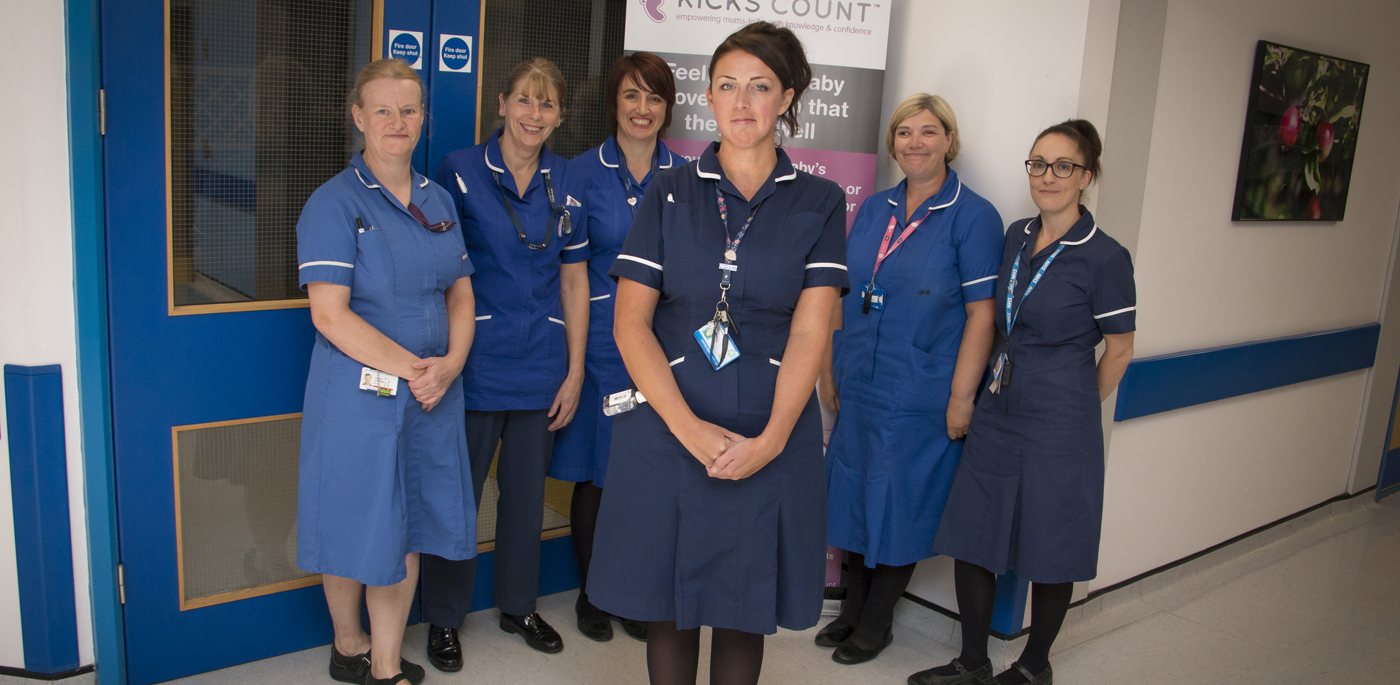Pregnant women could be putting their babies’ lives in danger by buying or renting home equipment to monitor their heartbeats.
As part of Baby Loss Awareness Week, midwives at Hull Women and Children’s Hospital are appealing to women to steer clear of hand-held Dopplers sold by private firms to check babies’ heartbeats.
Wendy McKenzie, sister of the Antenatal Day Unit and the Antenatal Clinic at Hull University Teaching Hospitals NHS Trust, said using a Doppler at home can stop women seeking urgent medical attention when their baby may be in distress.
She said: “Midwives and doctors have regular updates on training to listen to foetal heart rates so this is not something anyone can do.
“What you could be hearing is a maternal pulse so you could think your baby is fine when you should be contacting us. You could also be measuring a heart rate of 150 which you think is fine but is actually masking something untoward.
“You can also cause yourself unnecessary anxiety which is not good for either you or your baby.
“You are the best monitor of your own baby’s movements and if you have any concerns over reduced movements or if the movement patterns of your baby are altering, you need to contact us.”

Wendy McKenzie (front) with (left to right) Rachael Jackson, Healther Holland, Sarah Green, Louise Highes and Junior Sister Carlie Gilbert
Nine babies are stillborn every day in the UK. Only one in 10 of stillbirths are believed to be linked to a fatal congenital abnormality.
Hull University Teaching Hospitals NHS Trust is part of the national drive to halve the number of stillbirths and deaths of babies by 2025.
Wendy McKenzie said women usually feel the “flutter” or “roll” of their baby from 18 to 20 weeks. Some can experience it earlier while others first feel movement after their 20-week scan.
Between 17 and 28 weeks of pregnancy, women should to their community midwife if they are concerned about their baby’s movement.
After 28 weeks, women can referred themselves to the hospital’s Antenatal Day Unit or be referred by their GP, community midwife or health visitor.
Wendy said: “There is no specific number of ‘normal’ movements that women should experience. “However, after 32 weeks, you will be able to work out a pattern. Babies develop their own individual pattern that women will become familiar with.
“For some women, their baby could be awake throughout the night then go quiet for periods during the day. Babies do sleep for periods of time but that is rarely longer than 90 minutes.
“Importantly, women should be aware that babies should continue to move right up until labour and birth.
“It is not true that babies move less near the end of pregnancy. If this happens, women need to contact us without delay.”
Some women ring the unit at 8.30am because they haven’t felt movement in the early hours, perhaps because their baby is asleep. They are advised to lie on their left side, eat something, have a cold drink and focus on feeling their baby move 10 or more times in the next two hours.
If they don’t, they should call the unit again.
When women come to the unit, their blood pressure and urine will be checked along with their medical history.
Midwives, trained in the use of Dopplers, will check the foetal heart rate. Some women could be sent for an ultrasound and a cardiotocograph (CTG) will be used to record the foetal heart rate for around 30 minutes.
If the tests show all is well, the woman will be given guidance on what to expect with her baby’s movement and who she should contact if she had further concerns before she leaves.
Wendy said: “Women should contact us the same day if they have concerns. Women do lead busy lives but they should never be tempted to put off contacting us immediately.
“We have staff on duty around the clock who can help you every day of the week if you have any concerns. At the end of the day, we want women to be happy and reassured throughout their pregnancies.”
The Antenatal Day Unit is open every day of the week. If you are concerned over reduced movements or an altered pattern of movements, call the unit on 382729. Calls will be diverted to Maple Ward after 8pm during the week and after 5pm at the weekend.

